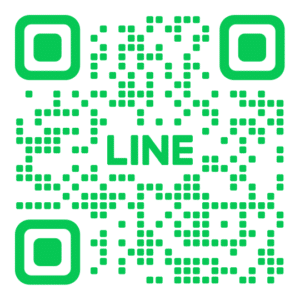Conditions Of Carriage
(Scope of application)
"Article 1"The transportation contract for the general passenger automobile transportation business operated by the Company shall be governed by the provisions of this transportation contract. Matters not specified in this transportation contract shall be governed by the provisions of the law or general customs.
2. If the Company agrees to a special agreement regarding some provisions of this Carriage Agreement within the scope that does not violate the purpose of this Carriage Agreement and the law, the special agreement shall prevail regardless of the provisions of that clause.
(Instructions from staff)
Article 2Passengers must follow the instructions of our drivers and other personnel carrying out duties for the safety of transportation.
(Acceptance of Transportation)
Article 3Except in cases where the acceptance or continuation of transportation is refused under the provisions of Article 3 or Article 4-2, paragraph 2, the Company will accept the transportation of passengers.
(Acceptance and Refusal of Transportation)
Article 4The Company may refuse to accept or continue transportation in the following cases:
(1) When the application for transportation is not based on this transportation contract.
(2) When there are no facilities suitable for the intended transportation.
(3) When the applicant is requested to bear a special burden regarding the transportation. However, in cases where transportation is requested to an area generally more than 50 kilometers away from the boundary of the operating area using toll roads (hereinafter referred to as 'toll roads'), the Company may request an amount equivalent to the toll road fees for the round trip from the passenger. Regarding the toll road fees for the return trip, it shall be the nearest toll booth to the operating area where the business-use vehicle is stationed.
In cases where the Company requests an amount equivalent to the toll road fees for the round trip from the passenger, the relevant provision of the transportation contract shall be displayed inside the business-use vehicle, and the driver shall provide sufficient explanation to the passenger in advance based on that provision.
(4) When the transportation is contrary to the provisions of laws and regulations or public order, or good morals.
(5) When there are obstacles to transportation due to natural disasters or other unavoidable reasons.
(6) When a passenger does not comply with measures taken by the driver in accordance with the regulations of the General Passenger Automobile Transportation Business, etc., Transport Rules.
(7) When a passenger is carrying items prohibited by the regulations of the General Passenger Automobile Transportation Business, etc., Transport Rules.
(8) When a passenger is so intoxicated that they cannot clearly state their destination or are so heavily intoxicated that they cannot walk without assistance.
(9) When a passenger is wearing unclean clothing that may contaminate the interior of the vehicle.
(10) When a passenger is seriously ill and unaccompanied by an attendant.
(11) When a passenger is diagnosed with or shows symptoms of Category I infectious diseases, Category II infectious diseases, new influenza or infectious diseases designated by the Infectious Diseases Control Law, or a person considered to be a patient of such diseases (limited to those requiring hospitalization).
Article 4-2Passengers are kindly requested to refrain from smoking inside our designated non-smoking vehicles (vehicles displaying signs indicating non-smoking, as defined in the following section).
2. If a passenger smokes or attempts to smoke inside our designated non-smoking vehicles, the driver may request the passenger to cease smoking. If the passenger does not comply with this request, we may refuse to accept or continue the transportation service.
(Fares and charges)
Article 5The fares and charges collected by the Company are based on approvals from the local transport bureau or notifications submitted to the local transport bureau at the time of passenger boarding.
(Collection of freight and charges)
Article 6The Company shall request payment of the fare and charges from the passenger when disembarking.
(Responsibility to passengers)
Article 7The Company shall be liable for compensation when the operation of its vehicle causes injury to the life or body of a passenger. However, this liability does not apply if the Company and its employees have not been negligent in the operation of the vehicle, if there is intentional or negligent conduct by the passenger, the Company's employees, or any third party, or if it can be proven that there were no structural defects or malfunctions in the vehicle.
In the case mentioned in the preceding paragraph, the Company's liability to the passenger begins at the time of boarding and ends upon disembarkation.
Article 8In addition to the preceding article, the Company shall be responsible for compensating passengers for damages suffered in connection with the transportation. However, this shall not apply if the Company and its staff can prove that they were not negligent in the transportation.
Article 9The Company shall not be held liable for compensating passengers for damages suffered due to temporary suspension of operation or other measures taken by the Company to ensure the safety of transportation due to reasons beyond the Company's control, such as natural disasters.
Article 10The Company shall seek compensation from the passenger for any damages suffered by the Company due to the intentional or negligent acts of the passenger, or the passenger's failure to comply with the provisions of the law or this transportation contract.





 ID: hachiiro
ID: hachiiro
 ID: +8180-6499-6087
ID: +8180-6499-6087